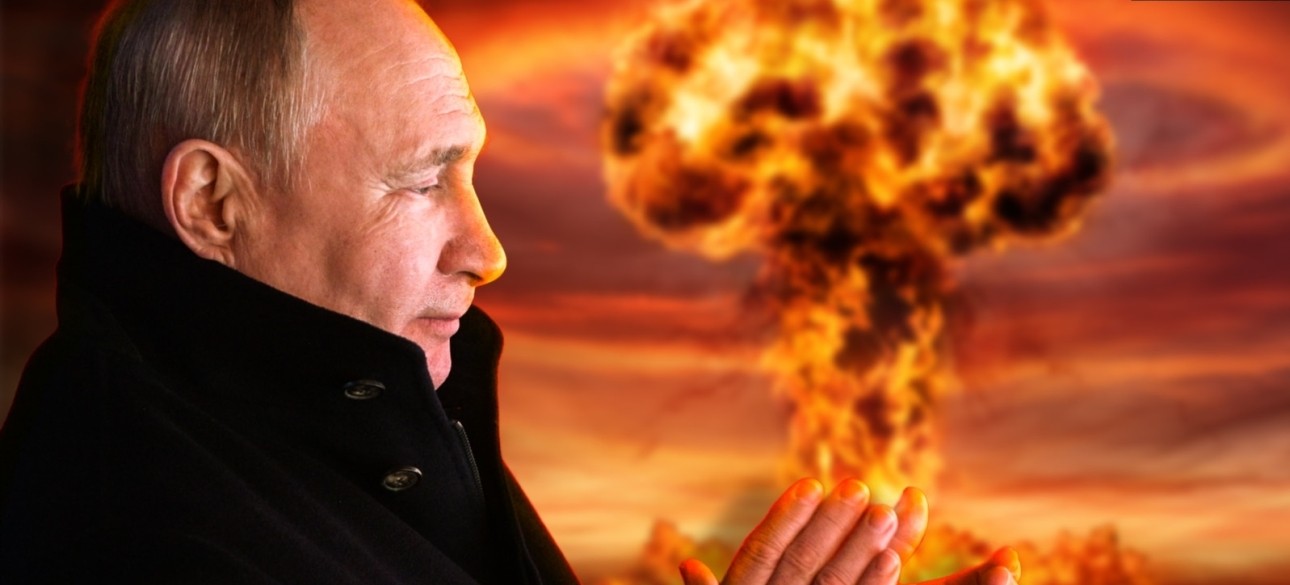
This tactic has proven highly effective against the risk of Western leaders who deliberately slowed the flow of weapons into Ukraine, fearing to provoke nuclear response. Such caution can have serious consequences for future international security. If the event does not resist nuclear intimidation by Vladimir Putin, there is a very real chance that he will continue to adhere to such tactics. And as a result, others will inevitably try to imitate it.
This can immerse the whole world into a new era of international instability, when countries are trying to ensure its own nuclear restraint. For the most part, Russian rattling "nuclear sabers" was deliberately ambiguous in nature and carefully customized to achieve maximum effect.
In the first days of the war, Putin publicly announced that he translates his country's nuclear forces into a state of special readiness, warning at the same time that anyone who would try to prevent the Russian invasion of Ukraine will "face the consequences of such a scale that you have never seen in history ". Seven months later, in September 2022, Putin again stated that he was ready to use nuclear weapons to protect the Russian people and protect the borders of the country.
"We, of course, use all the tools available to us, and I do not bluish," he warned. This threat was particularly threatening because it sounded at a time when Russia was preparing for the annexation of four partially occupied Ukrainian regions, and therefore any attempt to liberate these regions would be an attack on Russia itself. Other high -ranking Russian establishments were even more outspoken.
Former President and Prime Minister of Russia Dmitry Medvedev, who is now holding the post of Deputy Chairman of the Security Council of Russia, especially known for his nuclear threats. In July 2023, he warned on the social network that if, as a result of the summer offensive of Ukraine, the Ukrainian regions, which claims the Russian Federation, "we will be forced to use nuclear weapons because of the provisions of the Presidential Decree of Russia.
" Russia's enemies "must pray for our fighters so that they do not allow the world to cover the nuclear flame," he added. "Although such threats violate the norms of responsible behavior of states, they are consistent with the fact that we understand the existing nuclear doctrine. Uncertainty plays a decisive role in restraining," explains Marion Messmer, a senior researcher of the International Security Program in Chatham House.
States fear that the enemy can strike just below the "red line" if they are too clearly understanding that it is for the "red line". Russia's nuclear threats seem to be aimed at maintaining a high level of uncertainty, focusing the West's attention on potential miscalculations. Russia threatened or hinted at the use of nuclear weapons from a wide range of issues, but intentionally left uncertain potential launchers to create the illusion that Putin has a low threshold to activate nuclear weapons.
However, despite the fact that every "red line" of the Kremlin was crossed, nothing has changed. In particular, at the end of 2022, Ukraine liberated a number of occupied cities, which Putin himself previously declared Russian "forever", but this did not lead to a nuclear response.
Although Russian nuclear threats suffer from obvious problems with confidence in them, the extreme reluctance of many in the West to test Moscow's determination means that this tactic, however, has proved to be very effective in restricting or delaying the provision of military assistance to Ukraine. Although the quantity and quality of weapons supplied to Ukraine has increased steadily over the last one and a half years, each stage of this process has been marked by fluctuations and delay.
The United States has not agreed to provide Ukraine with a long -range missile range, and many commentators explain this unwillingness to the escalation of the conflict. "Our administration does not want to see the decisive success of Ukraine, so we are restraining, and we do not want Mr. Putin to expand or deepen the war," the US Air Force recently commented in Philip Bridlaw.
The timidness of the event in the face of Russian nuclear clattering with weapons is extremely short -sighted and can have catastrophic consequences in Ukraine and beyond. Although the risks of confrontation with Russian nuclear threat are obvious, the danger of the future may be much higher.
Since a full -scale invasion of a year and a half ago, Russia was able to use its nuclear state status to occupy entire regions of a neighboring country, while maintaining the international community from coming to Ukraine. The more time it is without a decisive reaction of Ukraine's partners, the greater the likelihood that Russia's aggressive use of nuclear intimidation will be a normal element of international relations.










All rights reserved IN-Ukraine.info - 2022